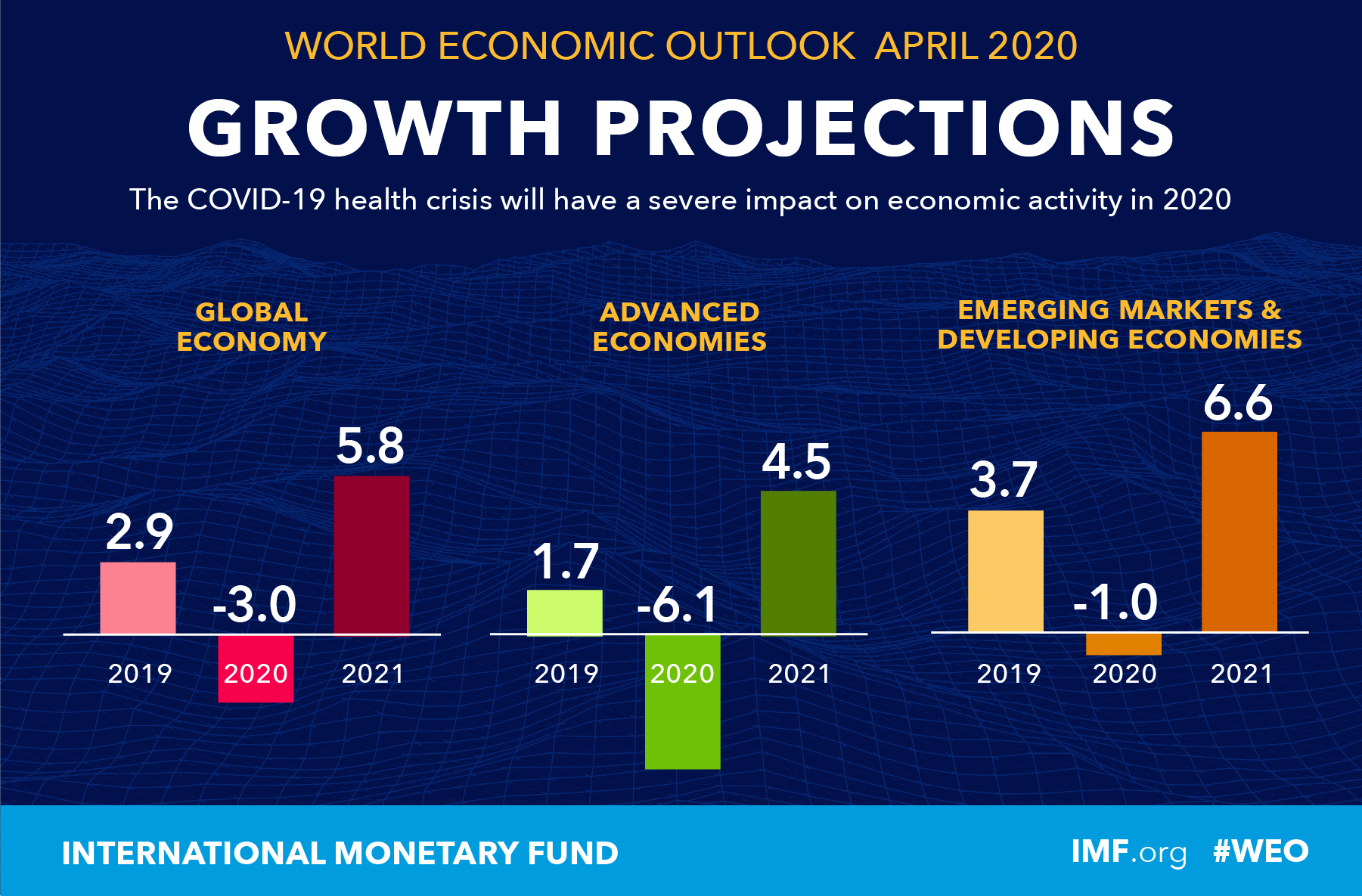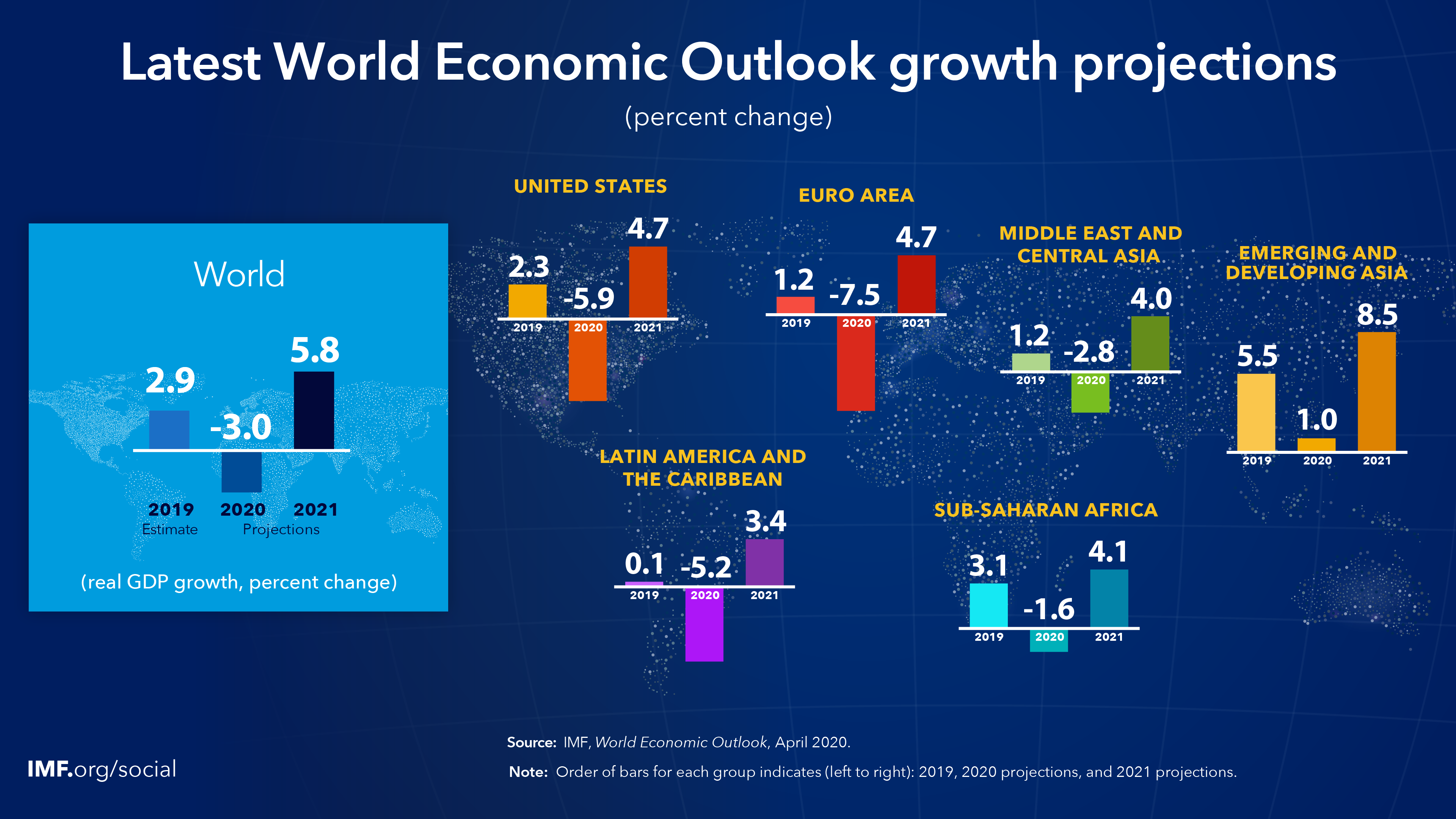While Sweden may have taken a different approach to most others and now claims that it could secure herd immunity against Covid-19 in a month, much of the world has gone into lockdown to protect its citizens and health services and reduce the peak of infection. But, this has inflicted high and rising human costs worldwide, and the necessary protection measures are severely impacting economic activity.
The IMF projection that the global economy will contract sharply by -3% is significant, but its forecasts on its recovery are probably the more notable statistic. The +5.8% growth in 2021 is factored on its baseline scenario--which assumes that the pandemic fades in the second half of 2020 and containment efforts can be gradually unwound. It also requires policy support from governments to reach these levels, according to the IMF.
"The risks for even more severe outcomes, however, are substantial," warns IMF. It says: "effective policies are essential to forestall the possibility of worse outcomes, and the necessary measures to reduce contagion and protect lives are an important investment in long-term human and economic health."

The IMF believes that because the economic fallout is acute in specific sectors, policymakers will need "to implement substantial targeted fiscal, monetary, and financial market measures to support affected households and businesses domestically". Looking internationally, IMF says that strong multilateral cooperation "is essential to overcome the effects of the pandemic, including to help financially constrained countries facing twin health and funding shocks, and for channeling aid to countries with weak health care systems".
It is clear that fiscal responses in affected countries has been swift and sizeable in many advanced economies (such as Australia, France, Germany, Italy, Japan, Spain, the United Kingdom, and the United States). Many emerging market and developing economies (such as China, Indonesia, and South Africa) have also begun providing or announcing significant fiscal support to heavily impacted sectors and workers. IMF says fiscal measures "will need to be scaled up if the stoppages to economic activity are persistent, or the pickup in activity as restrictions are lifted is too weak".

The -3.0% decline in world output for 2020 represents a -6.3 percentage point swing from the 3.3% growth that was originally predicted for the current calendar year. This was up from the +2.9% recorded in 2019. The growth for 2021 from its baseline scenario is up 2.4 percentage points on IMF's 2020 World Economic Outlook Update from Jan-2020.
The IMF projections highlights that advanced economies will be more widely hit by the Covid-19 pandemic in 2020, down -6.1% versus -1.0% among the emerging market and developing economies. Italy and Spain, where Covid-19 has been most widely spread in Europe are projected to be the worst hit, down -9.1% and -8.0%, but both are expected to rebound in 2021, up +4.8% and +4.3%, respectively.
Interestingly, China and India are both expected to still report growth in output - up +1.2% and +1.9% - according to the IMF projection, but this is down -4.8 and -3.9 percentage points on the expected levels outlined in the 2020 World Economic Outlook Update.